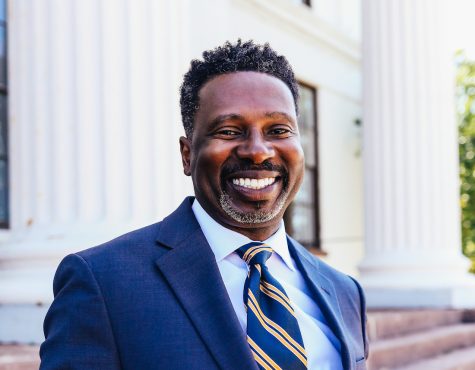Charlottesville and Confederate statues
Let’s be real here. Conservative or not, it is not in your best interest to defend the actions of the white supremacists who rallied in Charlottesville last Friday and Saturday.
Nor should you deny that these people are white supremacists. Anybody who gathers in the streets with guns and tiki torches, shouting phrases like, “white lives matter,” “the Jews will not replace us,” and the Nazi slogan, “blood and soil,” is by his or her very nature a white supremacist.
Like anybody who writes for his or her school’s newspaper, particularly in these times of political tension, I’m a major proponent of the First Amendment. Free speech is a right that has been curbed far too much, not only by the government but also on college campuses.
But it is necessary and in fact paramount that a distinction be made: What we are seeing in Charlottesville is not an exercise in free speech; it is hate speech.
We are living in times of fear and hostility brought on by the far-right (and from reactionary, far-left groups like Antifa, albeit to a much lesser extent). As the most diverse nation on the planet, one would hope that we would be past the days of prejudice and violent rhetoric. It’s not the 1950s anymore; it’s 2017.
But the way to fight forces like those we have seen in Charlottesville is not to erase the monuments that represent our history.
Had the Charlottesville city government not threatened the removal of a statue of Robert E. Lee from Emancipation Park the “Unite the Right” rally would have even happened. Why the rally would only fuel the removal of more Confederate statues is beyond me.
We see this not only in Charlottesville but also in North Carolina. On Wednesday, Governor Roy Cooper called for the removal of all Confederate statues from state property and in downtown Wilmington; at least two Confederate statues have been defaced.
We are seeing this everywhere in the South and each call to remove Confederate statues is nothing more than a tribute to perhaps the most restrictive and regressive concept in modern America: political correctness.
In Durham this Saturday, the President of Duke University ordered the removal of a statue of Robert E. Lee from the entrance to Duke Chapel in the name of “university values,” which we all know is just a more official way of saying political correctness. If we’re doing it for that reason, why not remove the entire chapel? Duke is a nonsectarian school and we certainly don’t want to offend anyone.
And why not change all of the faces on our currency, too? Many United States Presidents on our dollar bills were slave owners and some even proponents for the preservation and expansion of slavery.
However, we must also remember that the formation of the Confederacy was not primarily over slavery and that slavery was not considered a key factor of the American Civil War until after the Emancipation Proclamation, nearly two years after the war began. (We are all educated young adults. We should all understand this by now, unless 19th century American history was not part of our high school curriculum).
Some have called for these statues to be relocated to American history museums. Part of me doesn’t see a problem with that; but I also don’t see what harm these statues are posing by being in their original place. These are not symbols of hatred. They are not monuments to white supremacists and while these men did own slaves, they are not being honored as slave owners.
They are being honored as American heroes and as important figures to American history. That being said, it is important that we realize the Robert E. Lees and Jefferson Davises of the American Civil War are no less significant than the Ulysses S. Grants and Abraham Lincolns.







